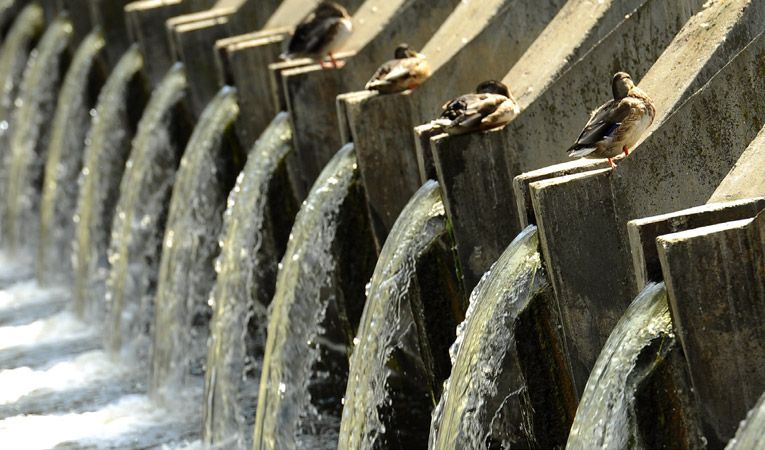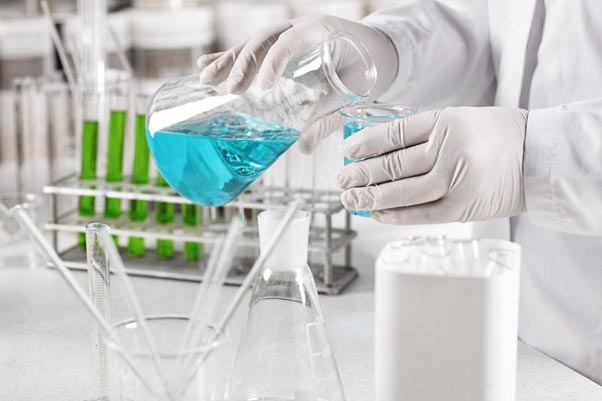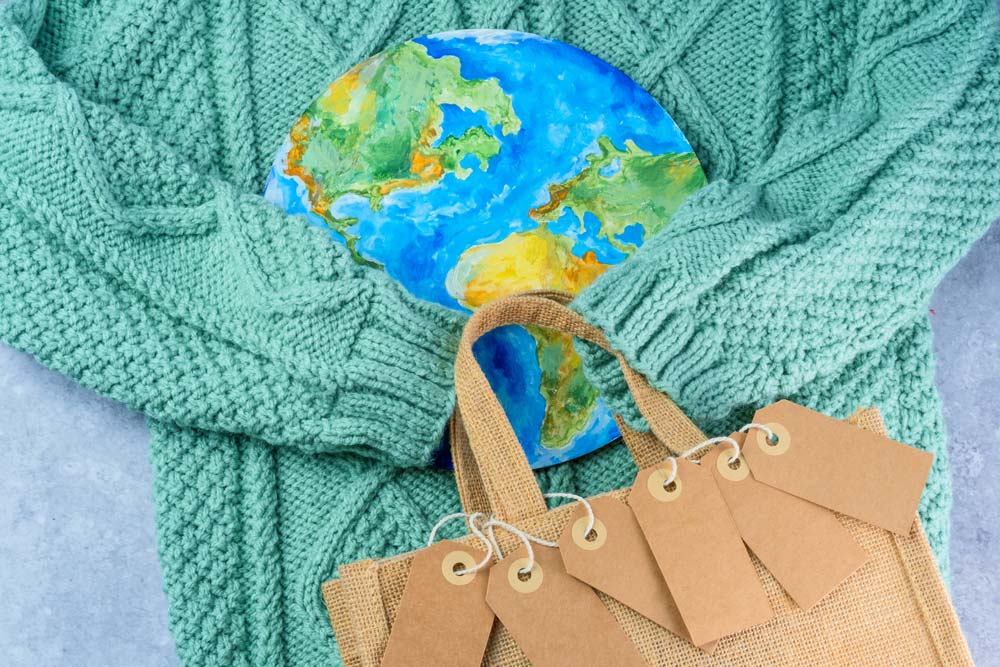Wastewater treatment: The most impacted industries 2nd
Article
Wastewater is one of the biggest environmental challenges we face today. Around 71% of the Earth’s surface is water, of which 97% are oceans. Though abundant, this resource is unusable without costly treatment, leaving us with just 3% of freshwater.
Most freshwater, however, remains inaccessible since it is stored in glaciers, the atmosphere, and polar ice caps. This makes the need for wastewater treatment an urgent demand for humanity.
The United Nations recognized this challenge back in 2015, resulting in wastewater treatment being listed as one of the eight targets identified by the United Nation’s Sustainable Development Goals (SDG 6) with the provision of clean water and sanitation for all by 2030. So far, progress has been slow — as much as 44% of domestic wastewater is not safely treated. Tracking the progress of industrial wastewater treatment is an even more difficult task, resulting in an unknown of the full extent of its impact. The UN’s 2021 Progress on Wastewater Treatment update states: “The proportion of industrial wastewater flow treated was 30% and could only be calculated for 14 countries (representing 4% of the global population). There are insufficient data to produce global and regional estimates.”
What is industrial wastewater?
There are three types of wastewater: domestic, industrial, and storm. Industrial wastewater is a by-product from the manufacturing of commercial products, such as food and drink, clothing, and the production of items like toys, cars, and mobile phones.
Existing legislation requires organizations to manage and remove any organic and inorganic pollutants to water used in industrial production before discharging the water for re-usage. Clearly, however, this isn’t enough — more than 80% of global municipal and industrial effluent (liquid waste) is thought to be pumped into the environment without being adequately treated.
Regulations need to be better enforced, in both richer and poorer countries, to protect ecosystems and provide a more sustainable way of living.
Which industries contribute most to industrial wastewater?
A number of industries contribute to industrial wastewater, including:
Textiles
In particular, this refers to industrial laundries. The commercial textiles industry services 15 billion pounds of laundry per year, including items like uniforms, bedding, and towels — all generating a substantial amount of wastewater that must be treated. The textiles industry also uses different dyeing processes, producing an estimated 20% of the world’s wastewater.
Chemical manufacturers
Unsurprisingly, chemicals used to produce petroleum, pharmaceuticals, and plastics —among others — release large amounts of dangerous pollutants that need wastewater treatment before being discharged into regular biological treatment plants and any water bodies after this.
Metal manufacturing and production
The water used for the production and galvanizing of steel, as well as iron, produces toxic contaminates that need treatment. A significant amount of wastewater is also produced by metal finishers that produce a sludge of metals that are dissolved in liquid.
Mining
Leftover finely ground rock and water from the mining process, known as mining tailings, is a costly and environmentally harmful challenge for mining companies. Many organizations create tailing ponds to avoid the costs of wastewater treatment, disposal, and transportation.
Oil and gas fracking
Hazardous wastewater from shale gas drilling, fracking, and industrial chemicals injected into the well to facilitate drilling contain high concentrations of harmful substances. These companies must dispose of significant quantities of water safely.
Power plants
Most fossil-fuel power stations produce huge amounts of industrial wastewater that contain significant levels of metals such as lead, mercury, cadmium,We and chromium, as well as arsenic, selenium, and nitrogen compounds. Plants that have air pollution controls also tend to feed any captured pollutants into the wastewater stream.
Food processing and agriculture
Food processing and agriculture wastewater have high concentrations of pesticides, insecticides, animal waste, and fertilizers that all need safe management and treatment before re-usage can be allowed.
Water/wastewater treatment plants
Of course, a by-product of water treatment plants is producing wastewater itself that needs Treating — making these another big contributor to industrial wastewater overall.
Industrial sectors and their major water pollutants
Industry / Major water pollutants
Dye manufacturing Copper, color, salt, sulfides, formaldehydes Paint manufacturing Chromium, zinc, lead, volatile organic compounds (VOCs) Textile Iron, chromiums, chlorinated compounds, nitrobenzene, alkanes, chloro alkanes, high salt Pharmaceutical Cadmium, nickel, phenolic compounds Petrochemical Petroleum hydrocarbons, phenolic compounds, nitrobenzene, alkanes, high salt Paper and pulp Organic and chloropenolic compounds, suspended solids, AOX, lignin, tannins, sterols, colors, biocides Metal working Perfluorooctane sulfonate (PFOS), ammonium nitrogen, cyanide, phenol, oil, grease Plastic Perfluorooctanoic acid (PFOA), lead, mercury, cadmium, diethylhexyl phthalate Agriculture Fertilizers, pesticides, insecticides Source:“Industrial Wastewater and Its Toxic Effects” (2021)
Which industries are most impacted by wastewater?
The following industries are the biggest consumers of water in their day-to-day operations and are therefore most impacted by the challenges posed by wastewater:
Agriculture
70% of the world’s freshwater is used for agriculture. A large portion of this water is wasted due to inefficient irrigation processes. This is followed by the farming of grains, fruits, vegetables, and nuts. According to a UNESCO study, shelled almonds and walnuts were named among the top three most water-intensive foods. Alongside this, almost a third of the water footprint for agriculture is used for meat production. With a growing worldwide population, the demand for more food is only increasing and so is its reliance on access to fresh water.Energy
Energy production is another large consumer of freshwater globally. Large amounts of water are used for the cooling processes of equipment. By 2035, the world’s energy consumption is expected to increase by 35%, which will consequently increase water requirements by 15% according to the International Energy Agency. Ultimately, this will impact anyone that needs electricity — whether to on a light, use a microwave, or charge a phone.
Manufacturing
All products require water during the production process. A new car, for example, consumes around 148,000 liters of water to produce. Other manufactured items that consume large amounts of water include boilers, air conditioning units, washing machines, and surface treatments such as paints. These are domestic products that we all depend on daily.
Textiles
The apparel industry is one of the most water-intensive industries in the world. A single pair of jeans requires nearly 7,600 liters of water which is primarily used for the fabric dyeing process and “wet processing”. Additionally, 79 billion cubic meters of fresh water is used annually by the fashion industry mainly due to cotton’s high-water demand.
Beverages
Alongside the liquids needed for the drink itself, ingredients like barley, sugar, fruit, and coffee also depend on large quantities of water for agricultural use. When you also consider the bottling process and packaging, it takes 350 liters of water to produce one liter of soda and 155 liters of fresh water for one pint of beer.
How can we improve industrial wastewater and reduce water consumption?
Water shortages will be a major global problem by 2025, increasing the need for rapid and scalable wastewater treatment. An EPA survey found that a $271 billion investment is required to improve the wastewater infrastructure over the next 5 years in the United States alone.
What can your organization do to help?
- Support a circular economy by recovering valuable resources discharged from sludge and reusing wastewater, as opposed to extracting water from the source.
- Innovative technologies can be implemented to identify where water usage can be optimized, improving efficiency and making it easier to manage, for example, sensors and AI.
- Build a conscious supply chain by choosing suppliers and partners that use sustainable processes and practices. Organizations can also utilize supply chain risk management systems to create accountability and transparency.








